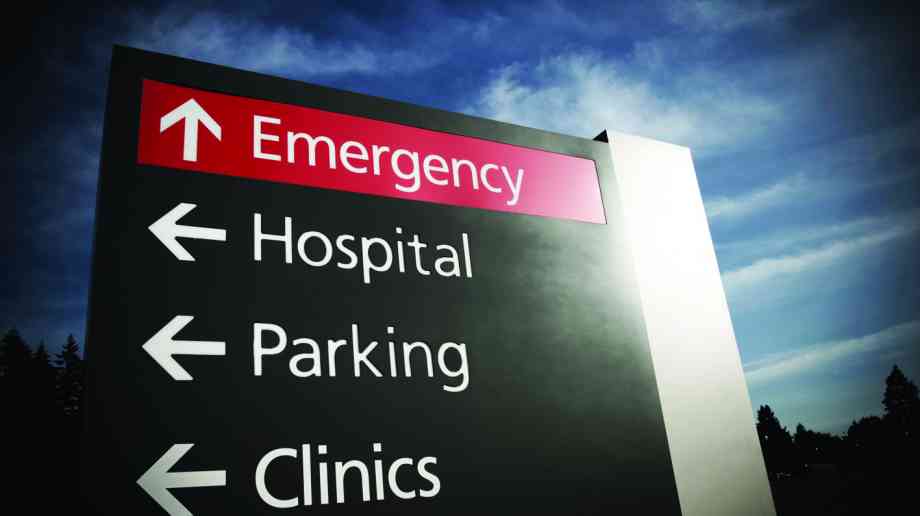Sue Robb of 4Children talks to Julie Laughton and Alison Britton from the Department for Education about the role of childminders in delivering the 30 hours free entitlement.
Better care in the community can prevent A&E admissions

New analysis has revealed that more than four in 10 emergency admissions to hospital from care homes could potentially be avoided through better care in the community.
As the NHS rolls out the Enhanced Health in Care Homes (EHCH) initiative , the Improvement Analytics Unit analysis says that 41 per cent of emergency admissions to hospital involving care home residents could be potentially avoided with better provision of preventative primary care, community support or NHS care in care homes.
The briefing also includes evaluations of four local sites where the NHS worked in partnership with care homes to step up the support they received as part of vanguard initiatives to improve care in care homes.
With decreases in potentially avoidable emergency admissions to hospital of up to 27 per cent, decreases in emergency admissions of up to 23 per cent or reductions in A&E visits of up to 29 per cent from care home residents, encouraging results were found across three of the four sites where the NHS worked in partnership with care homes to step up the support they received as part of vanguard initiatives to improve care in care homes.
Following the early findings, it was announced in the NHS Long Term Plan that the EHCH model will be rolled out nationwide to give everyone living in a care home improved GP support and more visits from specialists like dieticians and clinical pharmacists.
The analysis also reveals that nearly one in 12 emergency admissions to hospital are for people living in a care home, an estimated 192,000 emergency admissions each year. Furthermore, emergency admissions to hospital and A&E visits nationally were particularly high in patients from residential care homes, where the care of residents is provided by non-clinical staff. There were approximately 32 per cent more A&E attendances and 22 per cent more emergency admissions from residential care homes than from nursing homes, where residents receive in-house nursing care.
Adam Steventon, director of Data Analytics at the Health Foundation, said: “Emergency admissions to hospital can expose care home residents to stress, loss of independence, risk of infection and rapid muscle deterioration. Around 70 per cent of care home residents have dementia and can find the hospital environment even more stressful and disorienting as a result. Reducing avoidable emergency admissions and A&E attendances is good for residents and will help reduce pressure on the NHS.
“Our evaluations show that by increasing NHS support and improving partnership working with care homes it is possible to reduce emergency admissions to hospital and A&E visits among care home residents and local sites have made good progress on integrating services, despite real pressures in social care. It also highlights that better preventative care may help to reduce unnecessary emergency hospital admissions, for example some fractures may be avoided with appropriate risk assessment and falls prevention. However, further progress may be jeopardised without urgent reform and investment for social care. The NHS Long Term Plan rightly identifies that both the well-being of older people and pressures on the NHS are linked to how well social care is functioning.”
Ian Hudspeth, chairman of the Local Government Association’s Community Wellbeing Board, said: “It is vitally important that care home staff continue to be trained and supported to make the right decisions for their residents. Councils are working with local care homes providers and the NHS to ensure that this remains the case. However, care staff recruitment, retainment and training requires essential resources and investment, which is further hampered by high turnover and low wages in the social care market.
“This needs to be addressed as part of the much-delayed social care green paper, which we are calling on government to publish by the time the party conferences start. Adult social care faces a £3.6 billion funding gap by 2025 and public health budgets have seen cuts of £700 million over the last five years. If we are to help reduce emergency hospital admissions, this also needs to be addressed as a matter of urgency by the new Prime Minister in the upcoming Spending Review.”
The Improvement Analytics Unit is a joint initiative between NHS England and the Health Foundation.
Company Focus
BLE Lighting & Power Ltd, a leader in cutting-edge lighting and power solutions, is proud to introduce BLE Connect, a groundbreaking Fully Automated Emergency Lighting System designed to simplify the labour intensive maintenance of emergency lighting across multiple facilities.
Event Diary
UKREiiF has quickly become a must-attend in the industry calendar for Government departments and local authorities.
The multi-award-winning UK Construction Week (UKCW), is the UK’s biggest trade event for the built environment that connects the whole supply chain to be the catalyst for growth and positive change in the industry.
Supplier Profiles
Geo Energy
At GeoEnergy Design, we're on a mission to disrupt the traditional way heating and cooling ha
Latest Features
Professor Harith Alani, director of the Knowledge Management Institute at the Open University explains how AI can be used for good and bad.
Alex Lawrence, head of health & social care, techUK sets out techUK’s Five Point Plan for CareTech.

















